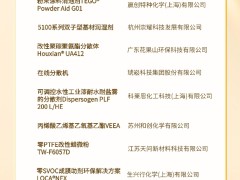据3月3日offshore energy消息:荷兰海上运输服务提供商Future Proof Shipping已同意将其内陆船只Maas改装为零排放氢气推进系统。
经过数月能源分析,这艘110米长的内陆集装箱船将于2021年第三季度在荷兰船厂集团位于Hardinxveld的船厂进行改装。
FPS公司在声明中表示,预计到今年12月,该公司氢动力将达到100%。
改造过程包括用氢燃料技术取代内燃机技术,移除主引擎和变速箱,并安装新的模块化推进系统。
这将包括电动马达、氢罐、PEM燃料电池系统和蓄电池系统。压缩氢罐、燃料电池和蓄电池系统是相对独立的,它们可以为了维护或更换而拆卸。
氢气和燃料电池系统将安装在船舶的货舱中,氢气将被放置在两个40英尺集装箱中的燃料电池系统上方。
燃料电池系统将有三倍的冗余,容量为825千瓦,一个504千瓦的锂离子电池组用于调峰、二次和桥接电源。该系统将包含一个750伏DC母线和一个用于推进的电动马达。
一旦重新投入使用,Maas将在鹿特丹和安特卫普之间进行集装箱运输,预计每年将减少2000吨二氧化碳排放。
该项目得到了荷兰RVO的资助(Duurzaam Scheepvaart补贴计划)、通过ZEM港口国家服务项目实施的区域间北海方案,以及由EICB创新中心执行的鹿特丹港可持续内陆航运激励计划。
在未来五年里,FPS计划建造并运营一支由10艘零排放内陆和近海船舶组成的船队,并提供租赁服务。
冯娟 摘译自 offshore energy
原文如下:
Holland Shipyards bags hydrogen retrofit for FPS
Dutch marine transportation services provider Future Proof Shipping has agreed to retrofit its inland vessel, Maas, to a zero-emissions hydrogen propulsion system.
Following months of energy profiling, the 110-metre inland container vessel will be retrofitted at the Holland Shipyards Group’s yard in Hardinxveld throughout the third quarter of 2021.
It is expected to be sailing 100 per cent on hydrogen power by December of this year, FPS said in its statement on Wednesday.
The retrofit process includes the replacement of internal combustion technology with hydrogen technology, removing both the main engine and gearbox, and installing a new modular propulsion system.
This will consist of electric motors, hydrogen tanks, a PEM fuel cell system and a battery system.
The compressed hydrogen tanks, the fuel cells and the battery system are separate units that can be removed for maintenance or replacement purposes.
The hydrogen and fuel cell system will be installed in the cargo space of the vessel, with the hydrogen being placed above the fuel cell system in two 40ft containers.
The fuel cell system will be triple redundant with 825 kW capacity and a 504 kWh lithium-ion battery pack for peak shaving, secondary and bridging power. The system will contain a 750V DC bus bar and an e-motor for propulsion.
once back in service, the Maas will carry on shipping container cargo between Rotterdam and Antwerp and is expected to reduce greenhouse gas emissions by 2000 CO2e tonnes annually.
The project is supported by funding from the Dutch RVO (Subsidie Duurzaam Scheepvaart scheme), Interreg North Sea Program, via the ZEM Ports NS project, and a stimulation scheme for sustainable inland shipping from the Port of Rotterdam, which is executed by the Expertise en InnovatieCentrum Binnenvaart (EICB).
Over the next five years, FPS aims to build and operate a fleet of 10 zero-emission inland and short-sea vessels which they will offer for charter.







